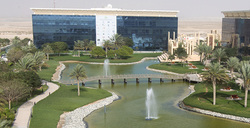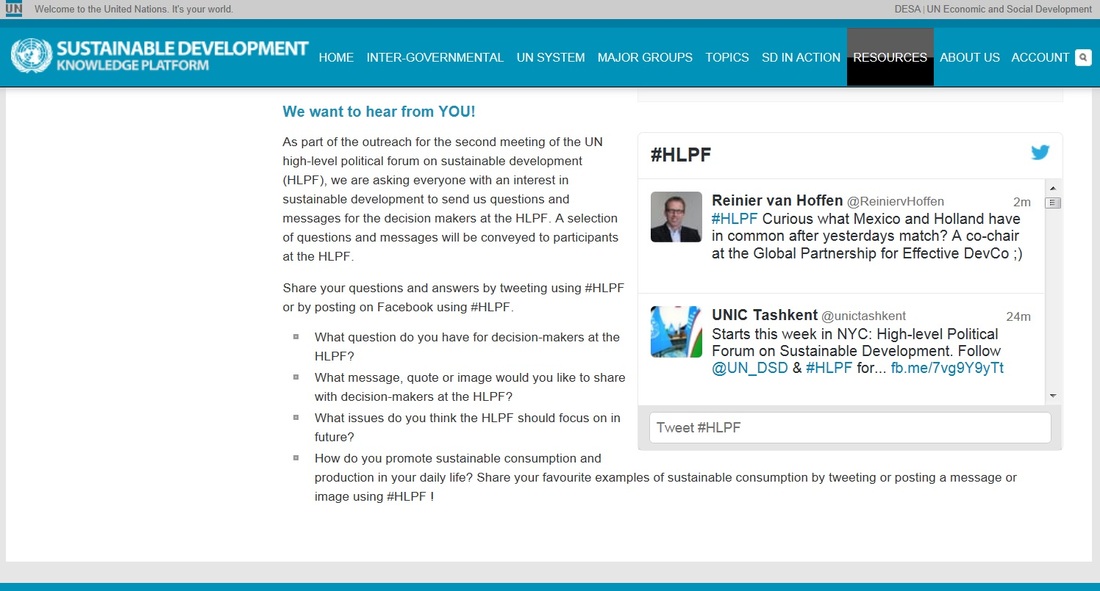 The International Humanitarian City in Dubai The International Humanitarian City in Dubai Today the Dutch will take on Mexico during the World Soccer Championship, a first step in the knock-out phase that will hopefully get the Orange team to the final in Rio. At the same time we realise that not only decisions on soccer are made in this part of the world. Mexico hosted the first High Level Meeting for Effective Development Cooperation in April which was partly a follow up to the Rio+20 conference and partly a follow-up to the Busan conference on aid effectiveness. The Global Partnership wants to help nations, business and organisations work better together to end poverty What happened in Mexico also aims to impact the consultations the UN has held in the past year around a new set of Sustainable Development Goals, leading up to this week's High Level Political Forum on Sustainable Development in New York. At the Mexican High Level Meeting the role of the private sector as provider for effective development processes was emphasized all over the place. The meeting was organized with a number of like-minded organizations and countries who consider the Private Sector as the next saviour of global development after the state has failed to deliver. At the end of the meeting in Mexico, the Dutch Minister for Aid and Trade, Mrs. Lilianne Ploumen, was offered the co-chair seat along with the Mexican Secretary of Foreign Affairs Mr. José Antonio Meade Kuribreña and the Nigerian Minister of Finance Ms. Ngozi Okonjo-Iweala. This weeks deliberations in New York of the Political Forum linked to the UN will tell us in how much the UN is willing to consider this role of the private sector. Last week one of my students shared this link to a story about the International Humanitarian infrastructure. Unfortunately the webpage is in Dutch. Hopefully google translate will help out. The pages describe the biggest humanitarian aid hub based in Dubai, known as the International Humanitarian City. A donation by Sheikh Mohamed Bin Rashid Al Maktoum, vice-president and prime minister of the United Arab Emirates and Ruler of Dubai. Just as he donates houses and other privileges to his citizens who naturally provide him all the public support he needs to stay in power. Almost all major humanitarian aid organisations (UN agencies and NGOs) have offices in this hub, and most humanitarian aid operations heavily rely on the logistical support from this hub. The question that comes to my mind is whether the world should embrace this kind of initiatives. In fact this is the biggest public-private-partnership you may think of. Questions may rise on how decisions on support are being taken. If the whole world puts their resources together, will it still be difficult to make individual choices on how to allocate funding and logistical support. Taking FIFA as an example. Everyone is enjoying the benefits of a tournament like the World Championships begin organised once in every four years. However, it is a public secret that the implementation of the event is left to a highly corrupt organisation lead by Mr. Sepp Blatter, who could be considered as one of the most powerful persons in the world. The recent scandal on how the organization of this event was awarded to Qatar shows how intertwined these dynamics are with something as political as humanitarian aid. Whatever Mrs. Ploumen may do in her capacity as co-chair for the Global Partnership for Effective Development Cooperation, it seems to me that the road towards transfer of responsibilities from the public to the private sector, often sold under the cover of social corporate responsibility will in the end not benefit everybody equally and will contribute to even more inequality. With the rich not only dominating the productive resource base (leasing large areas of productive soils in Africa) but also being in charge of the world's humanitarian aid, despite the noble intentions. With crises deepening priorities will be set by these powerful individuals and a deadly triage may take place at a global scale, with whole countries or continents left unattended. I would be in favour of contingency planning within countries and response capacity put in place in multiple hubs in the world, preferably managed by countries mostly affected by crises. However, I suppose the IHC is not only an act of charity but possibly a very clever strategy to maintain a dominant position in the global aid industry with supplies resourced in the Middle East. Comments are closed.
|
About meMy name is Reinier van Hoffen. U®Reading
Click here for a summary.
Also find the text of a lecture Dr. Achterhuis held at the 2012 Bilderberg conference. Archives
August 2022
|
AddressNachtegaallaan 26
Ede, the Netherlands |
Telephone+31 (0)6 1429 1569
|
info@uraide.nl
|

 RSS Feed
RSS Feed
















